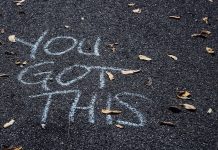How can we give a voice to the voiceless? By speaking up, speaking out, and above all else, being aware.
There are generous amounts of imagery and stories shared at this time. All of it is powerful. At the same time, exhausting. We see the same vicious cycles, yet again. Often, I ponder on the thought of “What can we do before civil unrest erupts?”
A lot of the dialogue that is arising starts at home. What conversations are you engaging in with your kids, family, and friends? What are you doing beyond reposting, speaking out on social media about your weariness and rage, and attending protests for a few days? Are you dismantling the systematic racism in your everyday interactions?
Home Grown
Home should be the safest place for these conversations to be engaged. Gentle discussions can be held, especially in regards to children. Speak to them about the reality of this world. Since my children are on the younger side, I keep conversations about injustice and discrimination very simple.
For example, I talk to my children about how people may perceive them differently because of the color of their skin. We tell them that there be a time when someone chooses not to be your friend because of your skin color. I teach my children that it is wrong to mistreat someone because they have a different skin color or even look different. I also teach them to “Do unto others as you want them to do unto you.”

When we go to the store, I don’t allow my kids to bring their toys. It hurts telling my two and four-year-olds why people may think they are stealing. But, I know if I don’t tell them, society will.
I explain it to them like this:
“It’s not because you are bad or have done anything wrong. It is because they don’t know you, think they do. You aren’t bad; we have to be careful.”
Luna, my oldest, has told her that these conversations make her uncomfortable. I tell her yes, they are uncomfortable, but mommy wants you to be able to be the best you, and these are things I want you to know so that you can be the best you.
It hurts that I have to have these conversations with my kids at this age. But, I want to instill in them a voice, a voice that speaks out against the injustices of this world.
Call Them Out
Let’s move the conversation to a business setting. If you invest your money, time, and energy into a company and get mistreated, call it out! For me, I’m calling corporate out or “the higher-ups” every single time. I’m not holding on to anger and rage that was evoked by someone’s racist actions.
By making the call, you are opening up the conversation. You can voice your concern and also inquire about what policies are in place for discrimination. Surprisingly most companies I’ve interacted with are willing to go the extra mile if you feel you have been treated unfairly or even witness someone else being mistreated.
Your feelings are valid. You deserve to be heard. Use your voice.
I know too many people who have experienced racism at work and never said anything or decided to leave the job instead of speaking out. This mindset was once mine until I had an experience so unreal I had to speak out. Once I did, the person in HR encouraged me to always speak out about racism and injustice in the workplace.

Take a Stance!
If you have never experienced racism or discrimination, don’t scoff at the fact this is a reality for some. Ask yourself, have you done anything to contribute and use your voice as a person of privilege to help be an ally. Don’t be afraid to sound naive or even silly.
Be confident and speak up about injustice. Whether you are the victim or someone observing it, start the conversation, no matter how small it may seem. Be open to talking to your children about discrimination. Teach them to speak up for the voiceless.
I encourage you to engage in these conversations beyond the current state. Use this time to turn your pain into passion. You do not have the right to remain silent. There are more opportunities than you think to use your voice. You can start by dismantling the systematic racism in your community and workplace. Be willing to recognize your unconscious biases, and don’t be offended when called out. We are in this together!










